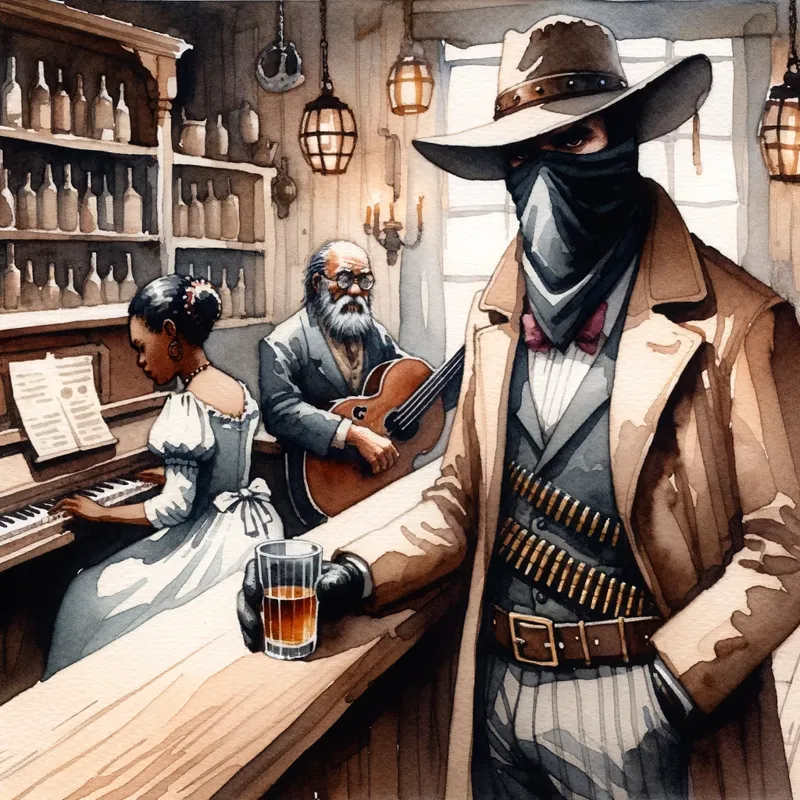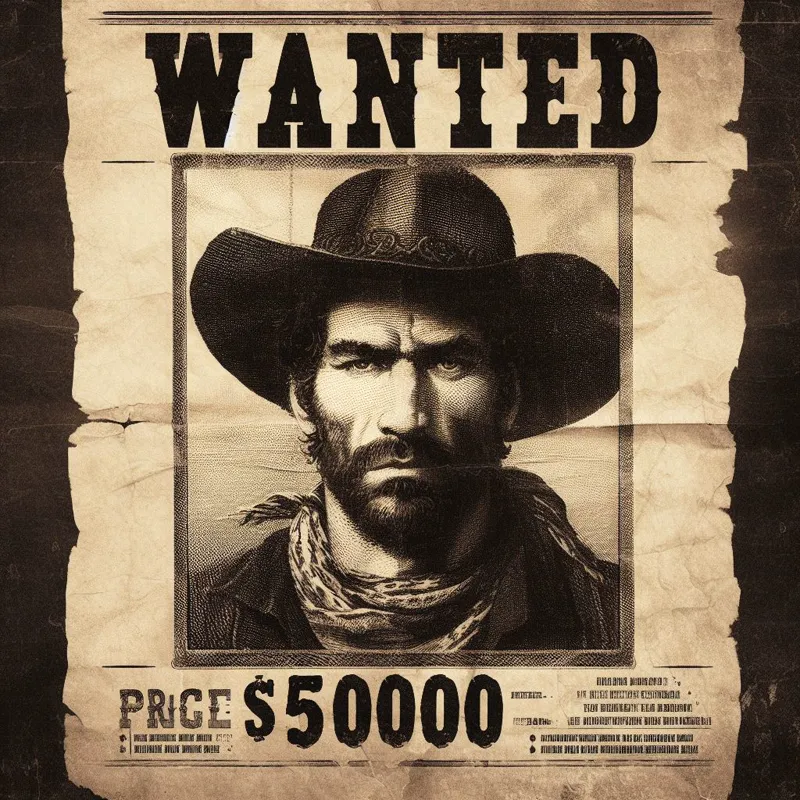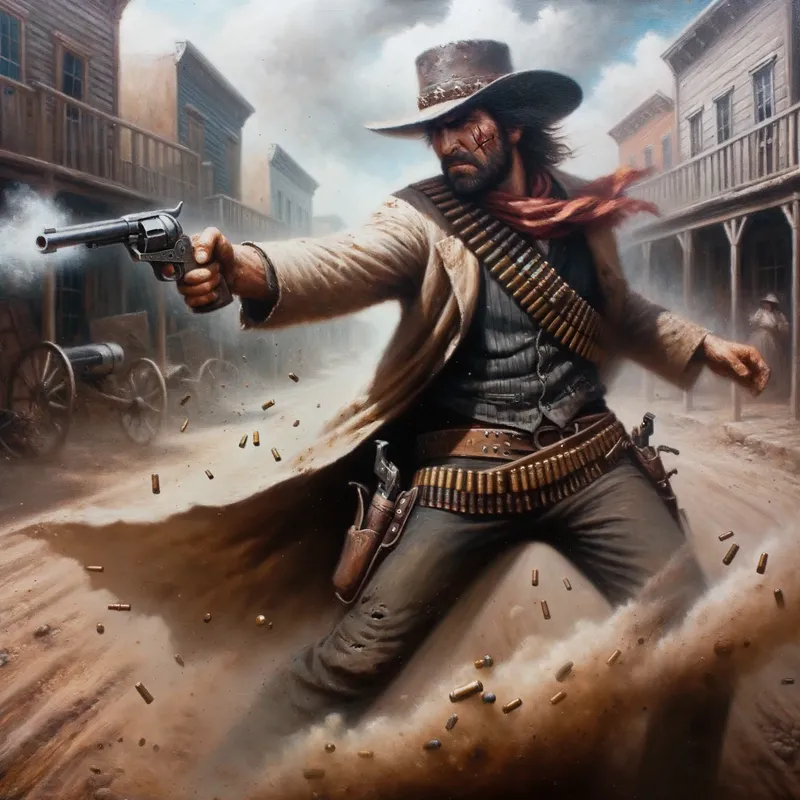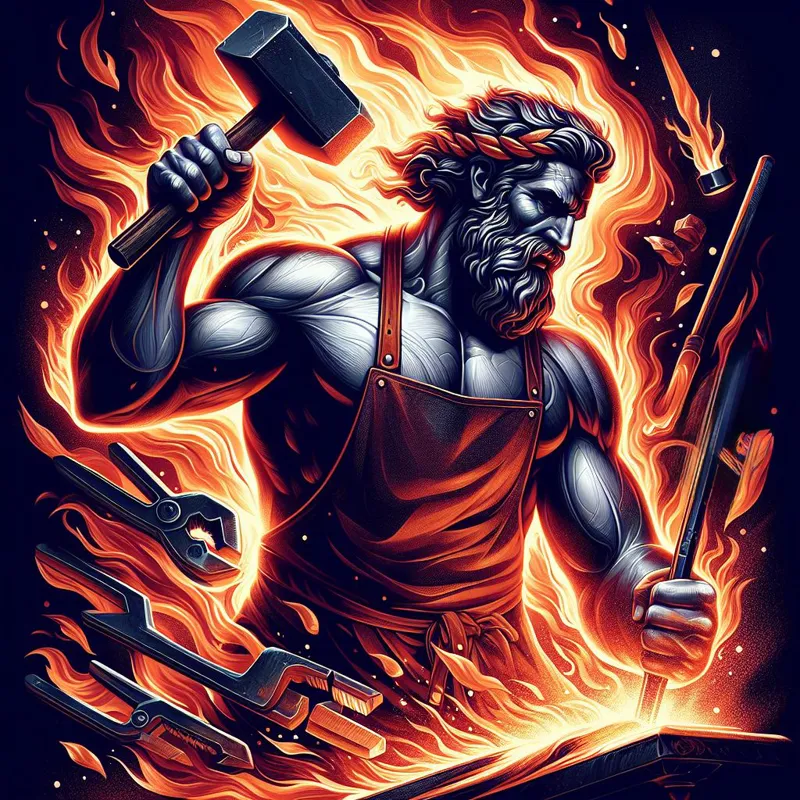
A leather strap and a shot of whiskey
The American Old West, a period that spans the late 19th century, was a time of immense change, opportunity, and lawlessness. Among the cast of characters that roamed this expansive landscape, bounty hunters stand out as enigmatic figures who walked the line between legality and vigilantism.
Tasked with capturing or killing fugitives for a reward, these individuals played a complex role in shaping the justice system and culture of the era.
The Role of Bounty Hunters

Funny looks
In the American Old West, bounty hunters served as a critical adjunct to established law enforcement. Operating in territories where the reach of the law was limited, these individuals took on the task of capturing or killing criminals in return for a monetary reward, known as a 'bounty.'

One for the road
With vast landscapes and sparse populations, the conventional law enforcement agencies often found it difficult to operate effectively, making bounty hunters a necessary component in the justice system.
The Legal Framework

Off the clock
Bounty hunting existed within a complex legal framework. While not officially part of the law enforcement system, many bounty hunters operated with a semblance of legality by carrying warrants for the arrest of their targets.

Consider the danger. Consider the difficulty
The common notion of 'dead or alive' bounties indicated a more flexible approach to due process, focusing on the end result of capturing the outlaw rather than adhering strictly to legal procedures.
Types of Criminals

Specialist
The range of criminals pursued by bounty hunters was broad, encompassing everything from petty thieves and cattle rustlers to dangerous murderers and bank robbers. Rewards were posted in various public spaces such as saloons, town squares, or local newspapers.

I'm gonna need a bigger gun
The more notorious the criminal, the higher the bounty, and some bounty hunters specialized in pursuing particularly dangerous or elusive individuals.
Motivations for Becoming a Bounty Hunter

Hot pursuit
The reasons people chose to become bounty hunters were multifaceted. Financial incentives were often a significant factor, as the bounties could provide a substantial income.

Fight or flight
Others were motivated by a sense of justice or adventure, viewing the profession as an extension of law enforcement or military service. For some, it was an opportunity to utilize skills they already possessed, such as tracking, sharpshooting, or interrogation techniques.
Tools and Techniques

Draw!
Bounty hunters of the Old West had to be resourceful and adaptable, relying on a diverse set of tools and techniques to capture or neutralize their targets. Firearms were a staple—revolvers for close combat and rifles for longer distances. Many bounty hunters were also skilled trackers, often employing horses and sometimes even dogs to follow a trail. Ropes for tying up captured outlaws, wanted posters for identification, and disguises to infiltrate criminal hideouts were other tools of the trade.

Shining star
Advanced skills in interrogation, negotiation, and even rudimentary psychology were also beneficial, enabling them to extract information from uncooperative sources or talk their way out of dangerous situations. The fusion of these various skills made bounty hunters formidable opponents for any criminals who dared to defy the law.
Ethical and Moral Considerations

The lion's share
While bounty hunting was generally accepted as a necessity for maintaining order, it wasn't without its ethical dilemmas. Some bounty hunters were known for their ruthless methods, often capturing their targets with little regard for bystander safety or collateral damage.

Investment in a trade
Others operated in morally grey areas, bending or breaking the law to achieve their ends. This led to a certain societal ambivalence about the profession, viewed by some as heroes and by others as vigilantes.
Cultural Impact

Pioneers
The figure of the bounty hunter has left an indelible mark on American culture, particularly in the folklore and mythology of the Old West. Represented in literature, films, and television, they often embody the rugged individualism and frontier justice that are considered quintessential American traits.

The work never changes
Whether viewed as heroes or anti-heroes, the role of the bounty hunter in shaping the Old West is an integral part of America's historical narrative.
The legacy of bounty hunters in the American Old West is a tapestry woven with threads of courage, opportunism, and ethical ambiguity. Operating in a time and place where the rule of law was often a nebulous concept, these men and women filled a crucial gap in the justice system. Their actions, whether motivated by financial gain, a sense of justice, or pure adventure, have made them enduring figures in American folklore and history, symbolizing the complexities and contradictions of frontier life.

















